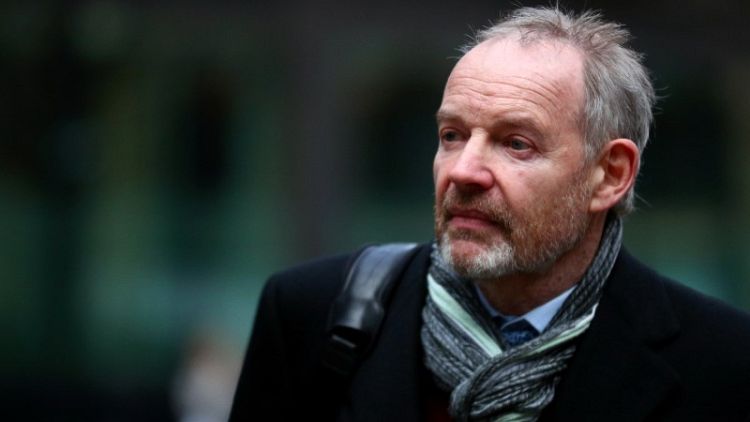By Kirstin Ridley and Lawrence White
LONDON (Reuters) - Richard Boath, an ex-Barclays boss on trial on fraud allegations, said the bank would be "basically dead" without a Qatari cash injection in 2008, a prosecutor said on Thursday.
The Serious Fraud Office prosecutor told the trial of Barclays' ex-chief executive John Varley and three former senior executives that Qatar had played hardball as the British bank struggled to shore up its balance sheet during the financial crisis.
"Without 1 bln (pounds), at the very least, from Q (Qatar) we are basically dead," Boath told his Barclays line manager on May 28, 2008, in a communication read out in Southwark Crown Court by prosecutor Edward Brown on the second day of the case.
Former CEO Varley, Roger Jenkins, Tom Kalaris and Boath deny conspiring to commit fraud by false representations when Barclays raised more than 11 billion pounds from investors in 2008, allowing it to avert a British state bailout.
Prosecutors allege the bankers hid from public documents around 322 million pounds in secret fees paid to the Qatari investors as they fought to meet their tough demands.
Jenkins, former chairman for the Middle East of the BarCap business, was the "gatekeeper for Qatar", Brown said, adding that when the Gulf state said it might invest at least 1 billion pounds in May 2008, there was initial delight at Barclays.
"Made my day. Know we have to get it over the line, but it's a great starting point for the conversation," Varley told Bob Diamond, the American executive who later replaced him as CEO, around May 13, 2008 in communications read out in court.
But this was short-lived after Qatar asked first for a fee of 3.75 percent in return for investing - substantially above the 1.5 percent Barclays was offering other investors - before settling on 3.25 percent, the prosecution alleged.
Trying to structure this deal proved a headache, Brown added, because all investors had to be offered the same terms.
"GOT US BY THE BALLS"
The case hinges in part on whether so-called advisory services agreements were for genuine services to be provided by Qatar or a means for Barclays to pay extra fees it demanded.
Transcripts of telephone and email conversations between Barclays executives at the time show the bankers debating the bank's vulnerable condition and the need to get the Qatari investment at all costs, the prosecution alleged.
"They've got us by the balls because the price is so low," Boath told a senior colleague, referring to Qatar's tough stance and the bank's low share price.
Some of the executives also joked about the possibility of going to jail if the Qatari deal did not play by the rules.
"None of us wants to go to jail here," Kalaris said to Boath in a recording of a telephone conversation played to the court. "The food sucks and the sex is worse," Kalaris added.
The trial is set to last up to six months.
(Reporting by Kirstin Ridley and Lawrence White, editing by Sinead Cruise and Alexander Smith)



